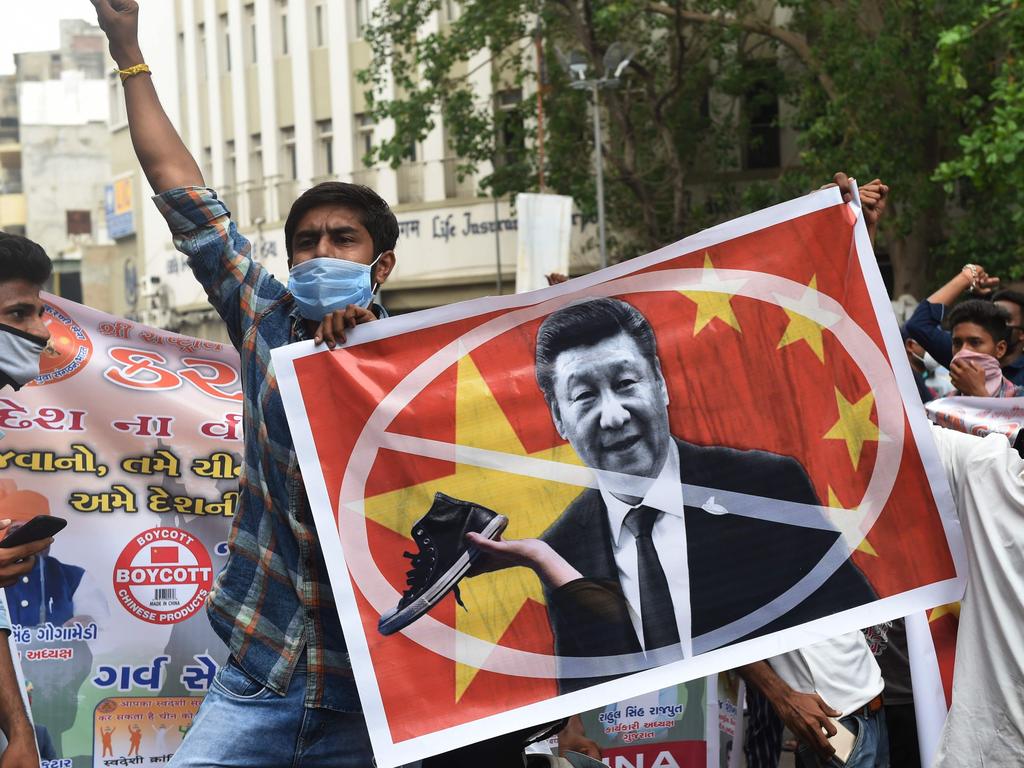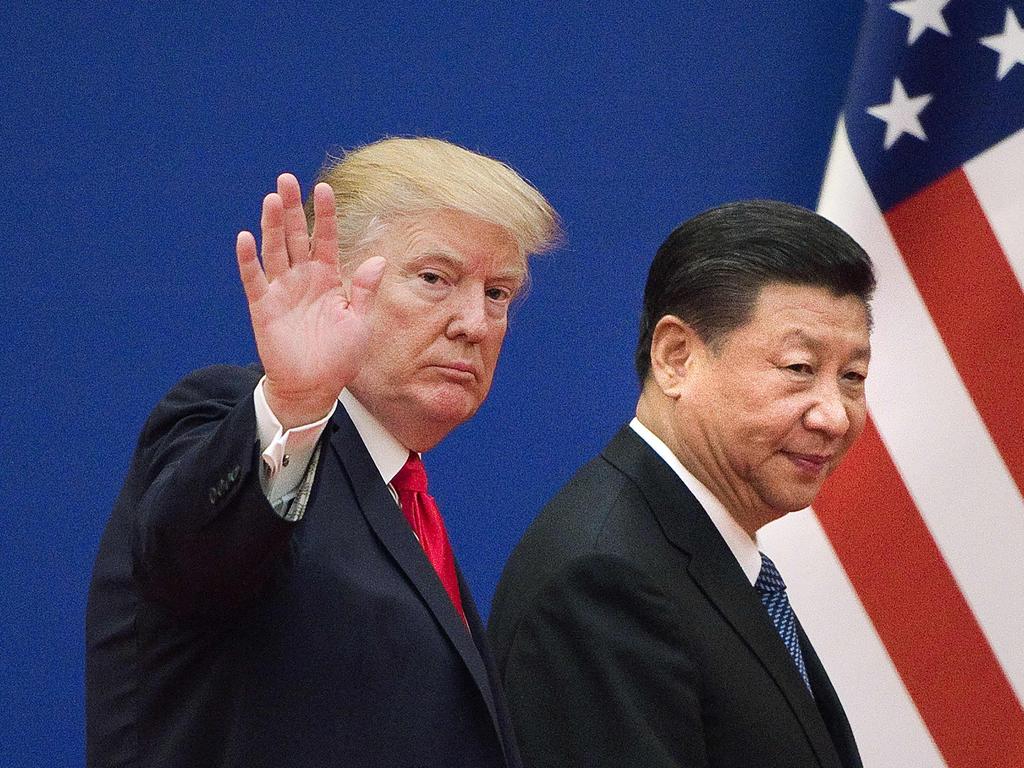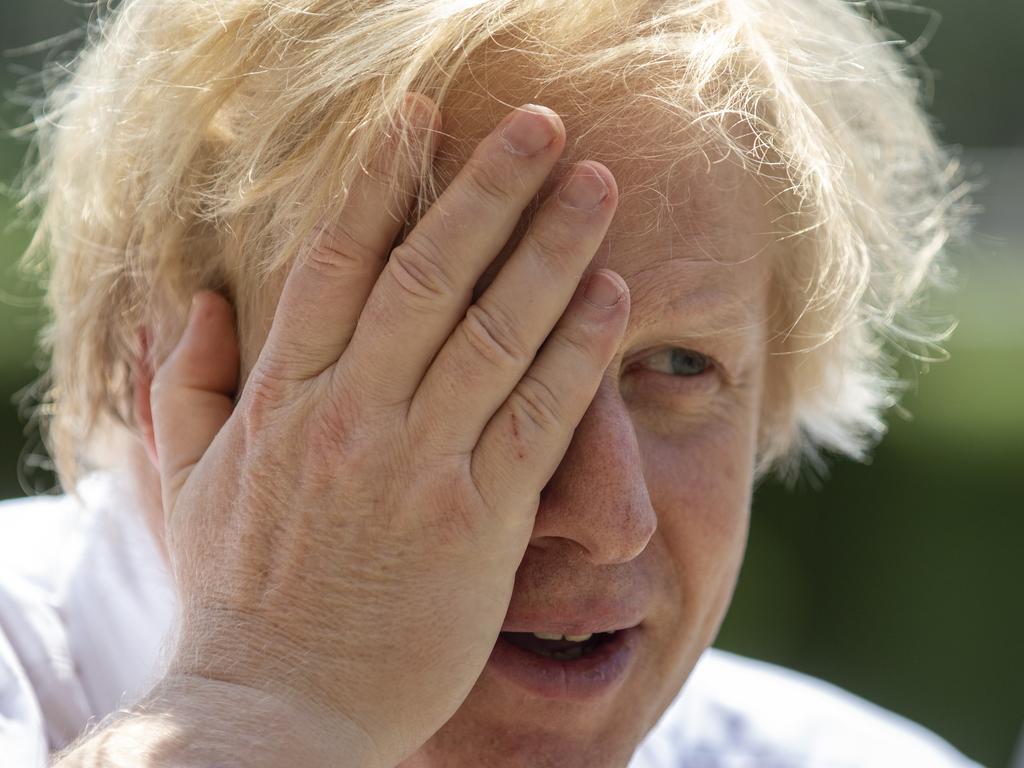‘Complete miscalculation’: What China got wrong about Australia in the wake of coronavirus pandemic
Former foreign affairs minister Alexander Downer said China’s “wolf warrior” diplomacy in the wake of the pandemic took the world by surprise.
The Chinese Government has made a “complete miscalculation” by taking the “long handle” to Australia following calls for an inquiry into the coronavirus pandemic and risks uniting Western allies against the country.
That’s according to former Australian foreign minister Alexander Downer, who said China’s aggressive sense of “wolf warrior” diplomacy in the wake of the pandemic has taken many nations by surprise.
Mr Downer, who also previously served as high commissioner to the UK and now works as Chairman of Trustees for UK think tank the Policy Exchange, said Western allies previously had different views on how to manage their relationship with the superpower. But the “vehemence” of China’s reaction to the Australian calls for an inquiry has shocked many.
“I suppose the Chinese thought that they could take the long handle to Australia because Australia is smaller, whereas to do the same to the United States would invite a very damaging backlash from the Americans,” he told news.com.au.
“In the case of Australia they, I guess, feel there is not so much Australia can do but actually that’s a complete miscalculation because Australia has such a network of allies around the world. I mean not least the United States and the UK and those countries have been very supportive.”
MORE: Chinese vaccine approved for military use
MORE: Follow the latest coronavirus news here

Australia’s call for an inquiry into the pandemic was eventually adopted by the World Health Assembly and backed by China, which bowed to international pressure for an investigation into the source and early handling of the pandemic, albeit under the auspices of the World Health Organisation.
But the move has led to significant repercussions for Australia including having tariffs slapped on barley exports, a ban on beef and a war of words over the prevalence of racism in Australia as well as accusations of spying and disinformation.
On Monday, China’s state-run Global Times accused Australia of waging a spying campaign against the country, publishing pictures of a compass, USB stick and map it claimed were seized from Australian agents. Prime Minister Scott Morrison did not address the issue directly but told reporters he “wouldn’t be relying on state media for your sources”.
Earlier this month, Foreign Affairs Minister Marise Payne warned Chinese “disinformation” was creating a “climate of fear” after Chinese and Indian troops clashed over a disputed border in the Himalayas.
Mr Downer said he believes the Morrison Government has been handling the escalating situation “really well” given it’s complicated by the fact China is Australia’s largest trading partner.
“China has become much more aggressive, pursuing this wolf-warrior diplomacy,” he said. “But the world has been startled by the vehemence of China’s reaction to Australia just suggesting there should be an international investigation into the outbreak of coronavirus which is an entirely uncontroversial and reasonable proposition, particularly as so many people have died and so many economies have collapsed as a result of it.
“China has been extremely aggressive towards a number of other countries including the UK where its threatened all sorts of hell and damnation if the UK reverses its decision on Huawei’s involvement with 5G. So China’s changed. China is pursuing a very unwise, very aggressive as they call it ‘wolf-warrior’ diplomacy and in the process it’s isolating itself.”

AUSTRALIAN TRUST IN CHINA EVAPORATES
A recent Lowy Institute poll shows Australian trust in China and confidence in President Xi Jinping has fallen sharply in recent years with nine out of 10 people believing the government should look to other trading partners
Report author Natasha Kassam told news.com.au this “significant shift” in the China narrative is partly due to events such as increasing aggression either in Xinjiang against Uigher people, a security crackdown in Hong Kong or diplomatic criticism of Australia.
“Until two years ago, the Australian public largely saw China as an economic opportunity. The rise of debates about foreign interference, Huawei and economic coercion has seen this perception shift to increasingly seeing China as a security threat. More and more Australians appear concerned about a perceived level of economic dependence on China,” she said.
Yet as coronavirus cases have surpassed 10 million worldwide with no sign of abating in major economic powers like the United States, India and Brazil, the world is only just facing up to the scale of the deep recession that could follow.
Australian virus case numbers remain low compared to international counterparts, despite a recent surge in cases in Melbourne, however finding a way out of a COVID-induced depression will require some skilled navigation.
“There is no market that can replace China for Australia in terms of size or scale. Australia will look to build closer relations with democratic partners in the region, like India, Indonesia and Japan,” Ms Kassam said.
“To some extent, more work will need to be done when it comes to India and Indonesia, as Australian views towards both countries are not positive. Public opinion appears to support the Australian government’s response to Beijing’s assertiveness of late, but this will be further tested as Australia falls into its first recession in 29 years. Australian anxiety about the security and economy of the nation will be central in future foreign policy.”

WHO CAN AUSTRALIA TURN TO?
So with a deep global recession on the horizon and nationalism on the rise in the US, who can Australia turn to as a significant global ally?
Mr Downer argues the UK is the most “like-minded” nation to Australia that is also focused on promoting free trade and liberal values as it looks to chart a new path outside the European Union for the first time in more than four decades.
The UK and Australia have recently embarked on the official start of talks towards a free-trade agreement and Australia is often held up as a sunny “exemplar” of a successful free-trading nation by Conservative UK politicians seeking to revamp Commonwealth connections post-Brexit.
Mr Downer said UK politicians are “very comfortable” with Australia and see it as a “constructive and natural partner”.
“They obviously hugely value their relationship with the US but I think privately they feel that these are slightly uncomfortable times with the Americans. They’re certainly giving a high priority to free trade negotiations with the US as well but I think they’ll find them a lot more difficult than negotiations with Australia,” he said.
“I would say that the UK was the most like-minded country on relevant issues that I’ve come across in my diplomatic career. They haven’t always focused very much on Australia because they’ve been preoccupied with their European destiny but that’s changed.”
MORE: Visas on the table for UK-Australia FTA

Ms Kassam said with insecurity and a downbeat economic outlook on the horizon it is natural to look for allies, but US President Donald Trump’s America First approach has left many at home unconvinced.
“Australia’s alliance with the United States still provides a level of security that Australians see as important, and support for the alliance has remained high even when US administrations have been unpopular,” she said, adding the poll shows three in four Aussies would prefer Joe Biden to win the November election.
But while trust in the UK is high, she’s not convinced it will become the next “special relationship” given the geographic distance and UK handling of Brexit and the COVID-19 crisis.
“In 2020, Australians have less confidence in PM Johnson than they did in his predecessor, Theresa May. However, Australia’s views of the United Kingdom may have been shaken by Brexit and by the UK’s handling of COVID-19. Only a third of Australians say the UK has handled the pandemic well, and our polling found that most Australians did not support Brexit,” she said.
“However, the majority are supportive of a free trade agreement between Australia and the UK. Ties between Australia and the UK will always remain close, but in the post-COVID world, Australia may be more focused on regional partners than its traditional friends in Europe and North America.”




